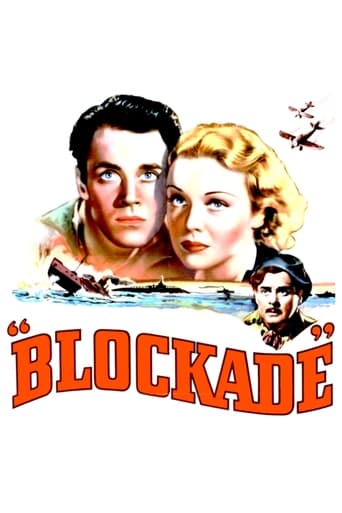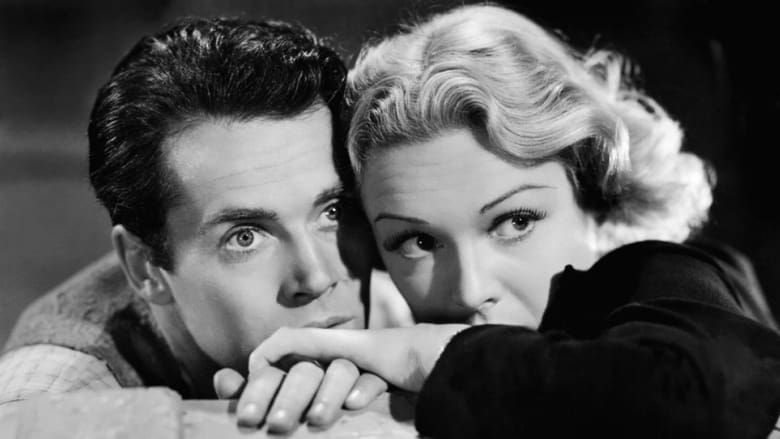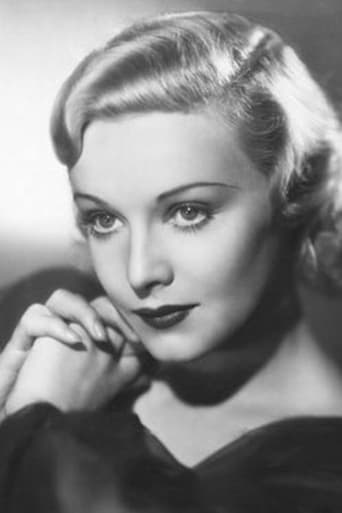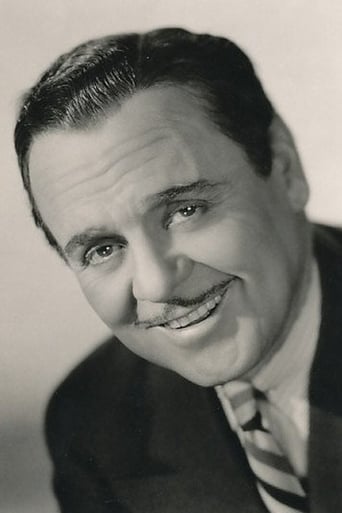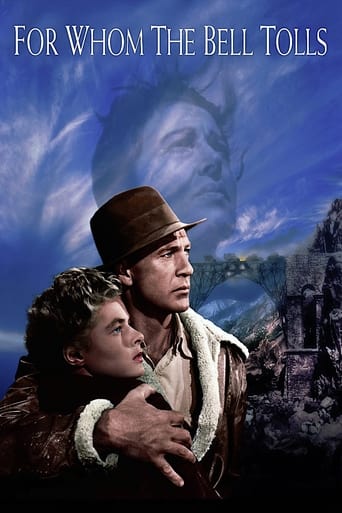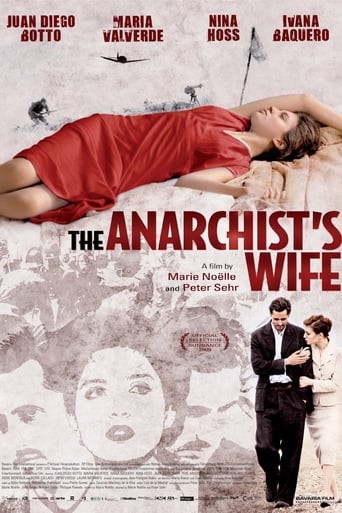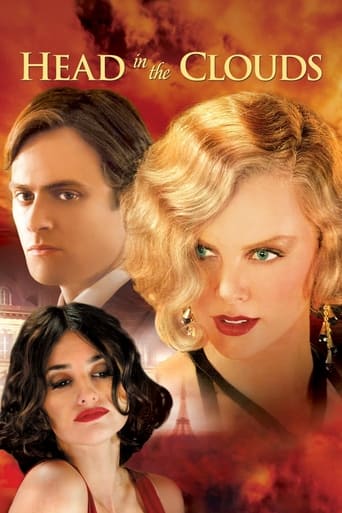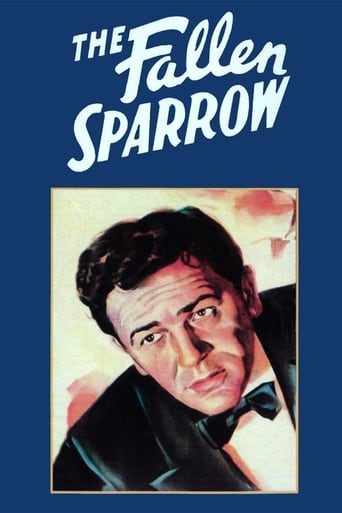Blockade (1938)
A simple peasant is forced to take up arms to defend his farm during the Spanish Civil War. Along the way he falls in love with a Russian girl whose father is involved in espionage.
Watch Trailer
Cast


Similar titles
Reviews
One of my all time favorites.
Absolutely the worst movie.
A movie that not only functions as a solid scarefest but a razor-sharp satire.
There is, somehow, an interesting story here, as well as some good acting. There are also some good scenes
Producer: Walter Wanger. Released through United Artists. Copyright 7 June 1938 by Walter Wanger Productions, Inc. New York opening at the Radio City Music Hall: 16 June 1938 (ran one week). U.S. release: 17 June 1938. Australian release: 15 September 1938. 9 reels. 84 minutes.SYNOPSIS: A Loyalist peasant (Fonda), aided by a Fascist spy (Carroll) whom he has converted to the Loyalist cause, raise the blockade of Barcelona.NOTES: Classified "C" for "Condemned" by the Legion of Decency, "Blockade" is a famous (or infamous) film that brought little credit on those who supported it (Democrats, Socialists, Communists and assorted left-wingers) and none at all to those who so vehemently opposed it (Catholics, Masons, Episcopalians, McCarthyites, Birchists, Ku Klux Klansmen, Republicans and other right-of-center and far-right organizations). Lawson was later blacklisted by the witch-hunting HUAC. Oddly enough, producer Walter Wanger managed to survive the post-war "anti-American" hysteria, but director Dieterle found himself on what he called "the gray list". As a result, his work opportunities were severely limited.Negative cost: $692,086. Initial world-wide rentals gross: $718,693. As only a 50% share of the gross at most was returned to Wanger, he ended up with a massive loss.COMMENT: Despite the pretensions of its scriptwriter, this romantic drama, set during the Spanish Civil War, is largely comic-book stuff. Clean-cut Henry Fonda, gazing moodily at Miss Carroll whilst quoting romantic poetry, — or stirring up refugees to resist the enemy, — is about as unconvincing a Spanish peasant as you can get. At least Fonda and all the other players — with two notable exceptions — spare us any attempts whatever at Spanish accents.The first of the exceptions of course is Leo Carrillo. He is obviously along mostly for comic relief, though he does have some "serious" bits, all of which he plays in an obnoxiously broad and hammy manner.Our second Spanish harmonizer is Vladimir Sokoloff (ingeniously introduced in one of the film's rare touches of directorial invention by tracking shots of his white-spatted feet) who provides the movie's one really convincing performance. His reluctant spy easily creams the rest of the cast. Unfortunately, his role is all too small, his death leading to Miss Carroll's delightfully trite encounter with Fonda: "You killed him. You!" — "I'm sorry, miss. I didn't know he was your father."The absurdity and unintentional ludicrousness of Miss Carroll's scenes with Fonda, allied with their pretentiously banal dialogue ("Never to see the sun again!"), plus the melodramatic contrivances of the plot twists that inexorably manage to bring these two stars constantly together, rank among the worst ever perpetrated in an "A" picture. How our Madeleine can keep a straight face through her "I never had a country" lines, rates as a minor miracle of histrionic self-control.As if one clown in the plot were not enough, the script later introduces Reginald Denny as a stage Englishman, whose function is mainly to feed lines to Carrillo. They indulge in a purgative, totally unfunny conversation about tinned corn beef.The pseudo-Spanish music score has to be heard to be believed. Heavily underlining every scene, it reaches a climax of movie bathos in the episode with Fonda leading the peasants to resist behind sandbanks, whilst a stirring off-camera chorus urges, "Fight for the Right!"Complete with obviously phony backdrops, the sets take pride of place as some of the most obvious fakes ever to come out of Hollywood. "Blockade" was most certainly filmed entirely on a studio sound- stage.
In the spring of 1936 in Castelmare, the peasants Marco (Henry Fonda) and Luis (Leo Carrillo) help the aristocratic Russian Norma (Madeleine Carroll) that had a car accident while driving to the house of her father Basil (Vladimir Sokoloff) and Marco falls in love with Norma.Sooner the Spanish Civil War begins and Marco leads a group of peasants to defend Castelmare and he is assigned lieutenant of the rebels' army. Meanwhile, Basil and Norma are forced to spy for Andre Gallinet (John Halliday). Marco suspects of Basil and follows him to his room. When Basil reacts, Marco kills him in a shooting.Meanwhile, Castelmare is under siege and without supplies, and Norma escapes from Marco. But she is blackmailed by Gallibet and forced to return to Castelmare with information about the ship that is bringing supplies for the population. "Blockade" is a shallow and corny melodrama during the Spanish Civil War (17 July 1936 to 01 April 1939). The dull romance between Marco and Norma has no chemistry and the author uses a historical event that is happening in 1938 in a neutral position and no references. The final speech of Henry Fonda's character is one of the awfullest conclusions that I have ever seen in a classic. My vote is five.Title (Brazil): "Bloqueio" ("Blockade")
This film is one of the very few Hollywood-style films made about the Spanish Civil War while it was still raging. A few films talked about it or had characters who supposedly fought in it, but were made DURING WWII when it was fashionable to say that you were against the Nazi-backed government of Franco. So since this film did take a stand, it does deserve some mention,....but only a small mention. That is because although the film was set in the midst of the revolution, the film sheds absolutely no light on who was fighting or even why. You would have had no idea that the Soviets or Nazis were actively supporting the Republicans as well as the Nationalists. And, very, very oddly, you are left to guess which side Henry Fonda is on, as this is never alluded to. Also, oddly, the uniforms of his side (which seems to be the Soviet-backed Republicans) look more like uniforms of Franco's Nationalists! All we REALLY know is that Fonda and his "side" is good and the other side is evil--talk about simplistic! Madeleine Carroll plays a very muddled role as a woman who ultimately works for BOTH sides. Fonda, oddly, gets a serious case of the "love at first sights" for Carroll--even though through most of the film she appears to be a spy for the other side! Talk about a lousy commitment to your ideals and an unconvincing "love story".The film ultimately gets a 5 because it is not a horrid film. It is mildly entertaining and takes SOME risk, though it is also very, very muddled and full of clichés as well. My advice is DON'T watch this film--read a history book about this war instead!
To paraphrase the late great Father Coughlin's jibe at the Roosevelt government's provision of "relief that failed to relieve", this inept film on the Spanish Civil War provided propaganda that failed to propagandize. That, at least to this viewer, is the only thought that lingered after suffering through almost 90 minutes of Blockade. I say this with a great deal of reluctance because I have always considered myself a great fan of both the principals of this film, Madeleine Carroll and Henry Fonda, but, alas, not even these two cinematic greats could salvage this bummer. In my quest to apportion blame I suppose the the script writer, a certain John Henry Lawson, is as good a place as any to start. The clunky lines he puts in the mouth of Fonda, a peasant hero of the so-called "republican" cause--particularly his closing monologue--are grounds for confinement in the most austere of labor camps courtesy of his obvious favorite, Comrade Joseph Stalin. I was especially struck by the tepidity of the romantic interludes with the beautiful Carroll, suggesting that a proletarian partisan like Mr. Lawson has little feeling for the more sublime side of human emotions. All of this I could excuse if Blockade offered anything approaching effective political propaganda if that was what it offered; but, at the risk of being tedious, that was precisely where it failed the most.For political propaganda that both entertains and persuades, let me suggest Casablanca. For political propaganda that offers only a few glimpses of the radiant Madeleine Carroll and nothing more, I recommend Blockade. That, unfortunately, is not enough to salvage this less than scintillating 1930s leftist pap.

